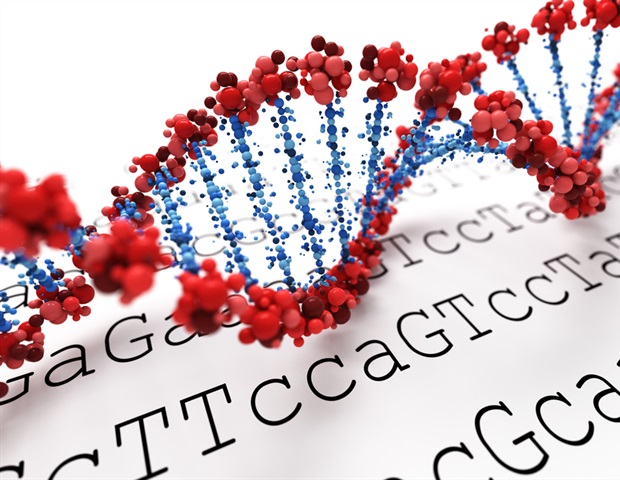
Scientists at St. Jude Children’s Research Hospital studied how common and rare genetic variants influence late-onset cardiomyopathy risk, highlighting the unique genetic complexity of childhood cancer survivors.
The relationship between genetic variants and the risk of late-onset cardiomyopathy remains poorly understood in survivors of childhood cancer despite being otherwise well established. Scientists from St. Jude Children’s Research Hospital have helped address this gap, assessing whether variant trends seen in the general population also apply to late-onset cardiomyopathy in five-year survivors of childhood cancer. The work revealed that, as in the general population, common variants in TTNand BAG3 are associated with reduced late-onset cardiomyopathy in childhood cancer survivors. However, rare variants that increased the risk of early-onset cardiomyopathy in the general population and survivors of adult cancer were not associated with late-onset cardiomyopathy risk in survivors of childhood cancer. This work, which was published today in JAMA Network Open, further highlights the distinct characteristics that set childhood cancer survivorship apart.
Survivors of childhood cancer have a 15-fold higher chance of developing cardiomyopathy compared to their healthy siblings. This increased risk is associated with certain cancer treatments and is further compounded by young age at diagnosis and traditional heart disease risk. However, these factors do not fully account for the increased level of risk childhood cancer survivors experience. Investigators are turning to genetics to help unravel survivors’ cardiomyopathy risk.
Survivors of adult and pediatric cancer have distinct genetic risk to cardiomyopathy
A team led by Yadav Sapkota, PhD, St. Jude Department of Epidemiology & Cancer Control, examined common and rare genetic variants associated with late-onset cardiomyopathy in the context of childhood cancer survivorship to shed light on these relationships. The researchers then compared these findings to other published studies, including those on dilated cardiomyopathy seen in the general public.
There are two types of dilated cardiomyopathy. The first is familial, early-onset, meaning if your parents have it, then you are more likely to have it. These cases are usually associated with rare variants. The second is sporadic, late-onset, where there is generally no family history, but common variants have been identified in the general population.”
Yadav Sapkota, PhD, St. Jude Department of Epidemiology & Cancer Control
The researchers examined 205 survivors from the St. Jude Lifetime Cohort (SJLIFE) and 248 survivors from the Childhood Cancer Survivor Study (CCSS) with late-onset cancer treatment-related cardiomyopathy. They focused on genes where common and rare variants were shown to be highly enriched in patients with cardiomyopathy in the general population and survivors of adult cancer, primarily within TTN, the gene that encodes the structural protein titin, and BAG3, which encodes a multifunctional regulatory protein of the same name.
The researchers found that common variants in TTN and BAG3 were associated with a reduced risk of late-onset cancer treatment-related cardiomyopathy in childhood cancer survivors. This is also the case for sporadic and late-onset dilated cardiomyopathy in the general population. However, rare variants previously associated with increased risk of familial, early-onset dilated cardiomyopathy and early-onset cancer treatment–related cardiomyopathy in survivors of adult cancer showed no association, highlighting the unique genetic complexity of long-term childhood cancer survivorship.
“In familial diseases, rare variants with a high effect usually kick in when you are still young, contributing to early-onset forms of the condition. These observations can likely be implicated in early-onset cancer treatment–related cardiomyopathy, but not in our late-onset cancer treatment cardiomyopathy,” Sapkota said. “Common variants usually confer a modest effect and contribute to late-onset forms of diseases. We had wondered if these variants associated with late-onset cancer treatment–related cardiomyopathy act similarly to the sporadic nature of dilated cardiomyopathy in the general population, which is, indeed, what we observe in this study.”
The study suggests that more accurate genetic variant screens driven by this better understanding and acknowledgment of the differences between early- and late-onset health outcomes may help improve risk assessment in the future.
Authors and funding
The study’s co-first authors are Achal Neupane and Kateryna Petrykey, St. Jude. The study’s other authors are Cindy Im, University of Minnesota; Monica Gramatges, Baylor College of Medicine; Erick Chow, Fred Hutchinson Cancer Center, Seattle Children’s Hospital and University of Washington; Smita Bhatia, University of Alabama at Birmingham; Paul Burridge, Northwestern University; John Jefferies, University of Memphis; Daniel Mulrooney, St. Jude and University of Memphis; and Kendrick Li, Jennifer French, Xin Zhou, Jian Wang, Stephanie Dixon, Matthew Ehrhardt, Leslie Robinson, Kirsten Ness, Melissa Hudson, Gregory Armstrong and Yutaka Yasui, St. Jude.
The study was supported by the National Institutes of Health (R01 CA261898, R01 HL173881, R01 CA216354, R21 CA261833, U24 CA55727, U01 CA195547 and CA21765) and the American Lebanese Syrian Associated Charities (ALSAC), the fundraising and awareness organization of St. Jude.
Source:
Journal reference:
Dixon, S. B., et al. (2025). TTN and BAG3 in Cancer Therapy–Related Cardiomyopathy Among Long-Term Survivors of Childhood Cancer. JAMA Network Open,. doi.org/10.1001/jamanetworkopen.2025.15793.







